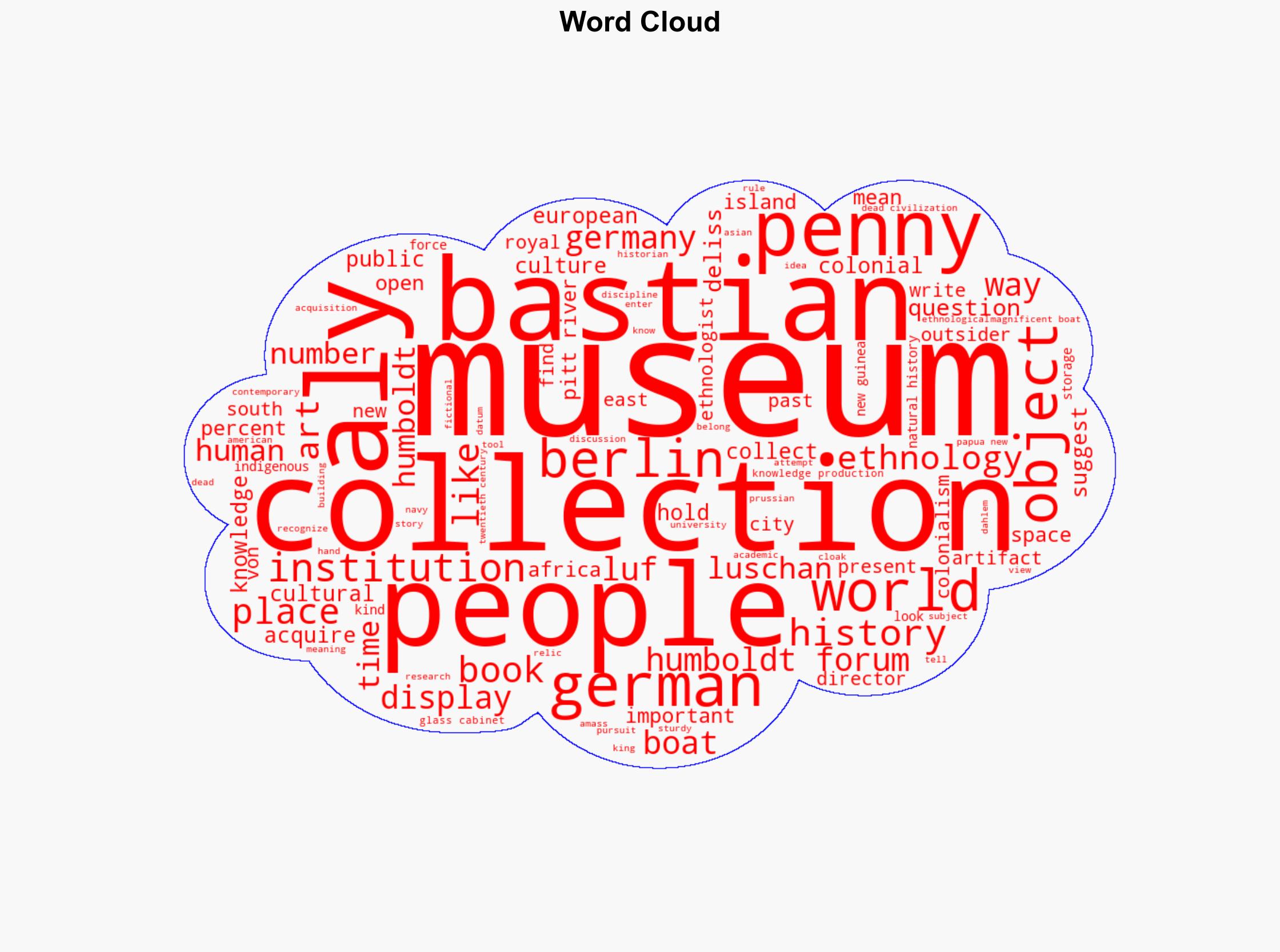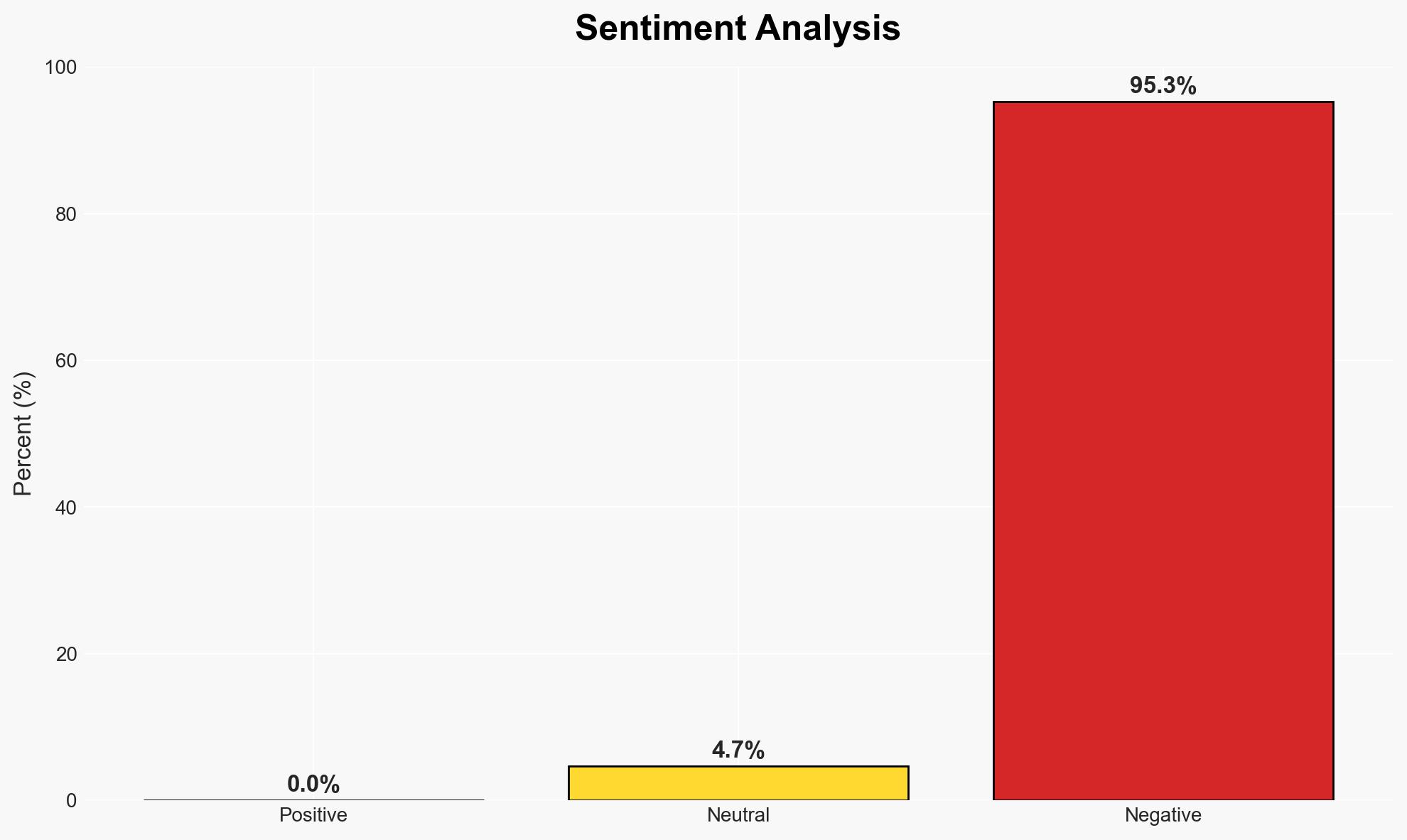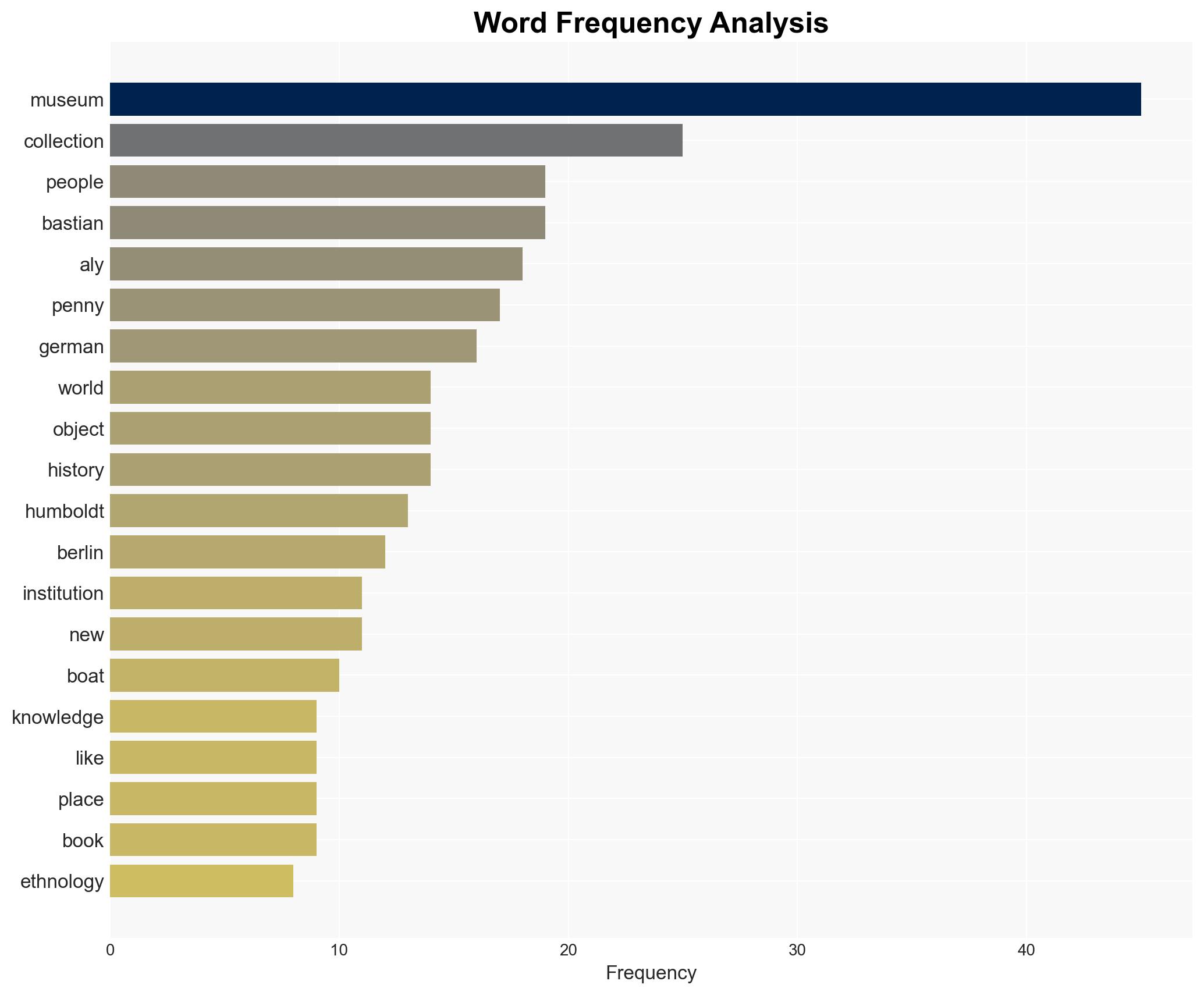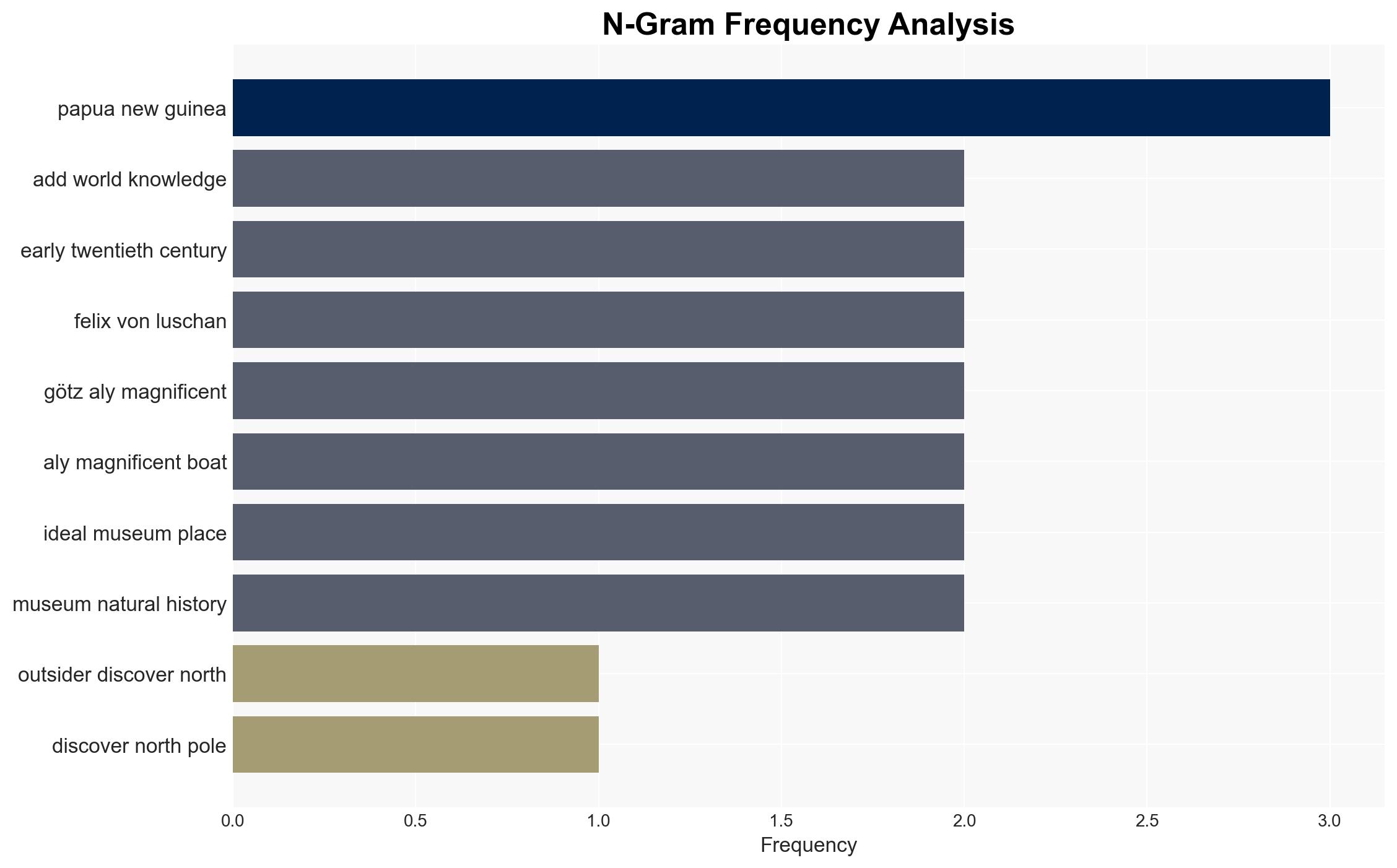The Ethical Quandary of Cultural Exploitation in Historical Expeditions
Published on: 2025-11-27
AI-powered OSINT brief from verified open sources. Automated NLP signal extraction with human verification. See our Methodology and Why WorldWideWatchers.
Intelligence Report: The Plunderers Dilemma
1. BLUF (Bottom Line Up Front)
The integration of ethnological collections into Germany’s Humboldt Forum is perceived as a contentious effort to reframe historical colonial acquisitions within a modern multicultural context. This initiative faces criticism for potentially masking colonial nostalgia under the guise of cultural inclusivity. The most likely hypothesis is that this move is primarily driven by a desire to enhance Germany’s cultural diplomacy, albeit with moderate confidence due to significant public skepticism and historical sensitivities.
2. Competing Hypotheses
- Hypothesis A: The relocation of ethnological collections to the Humboldt Forum is a genuine attempt to foster cultural understanding and inclusivity. This is supported by the Forum’s stated mission and the modern presentation of artifacts. However, the historical context of these collections and public criticism suggest a potential underlying motive of colonial nostalgia.
- Hypothesis B: The move is primarily a strategic effort to rebrand Germany’s colonial past and enhance its cultural diplomacy. This is supported by the timing of the relocation and the emphasis on a modern, multicultural presentation. Contradictory evidence includes the Forum’s efforts to engage with source communities and address historical grievances.
- Assessment: Hypothesis B is currently better supported due to the strategic context and public perception of the move as a rebranding effort. Key indicators that could shift this judgment include increased transparency in the Forum’s operations and genuine engagement with source communities.
3. Key Assumptions and Red Flags
- Assumptions: The Humboldt Forum’s mission is accurately represented in public statements; public criticism reflects broader societal views; Germany seeks to enhance its cultural diplomacy.
- Information Gaps: Detailed insights into internal decision-making processes and stakeholder engagement strategies of the Humboldt Forum.
- Bias & Deception Risks: Potential bias in public criticism due to national historical sensitivities; risk of strategic messaging by the Forum to downplay colonial aspects.
4. Implications and Strategic Risks
This development could influence Germany’s cultural diplomacy and its international reputation, particularly in former colonial regions. It may also impact domestic social cohesion by reigniting debates on colonial history.
- Political / Geopolitical: Potential strain on relations with countries of origin if perceived as insincere; opportunity for enhanced cultural ties if managed transparently.
- Security / Counter-Terrorism: Minimal direct impact, though increased cultural tensions could indirectly affect social stability.
- Cyber / Information Space: Likely increased digital discourse and potential misinformation campaigns targeting the Forum’s motives.
- Economic / Social: Possible economic benefits from tourism; social risks from domestic backlash or international criticism.
5. Recommendations and Outlook
- Immediate Actions (0–30 days): Monitor public and international reactions; engage with source communities to address concerns.
- Medium-Term Posture (1–12 months): Develop transparent communication strategies; foster partnerships with international cultural institutions.
- Scenario Outlook:
- Best: Successful rebranding enhances cultural ties and international reputation.
- Worst: Backlash leads to strained diplomatic relations and domestic unrest.
- Most-Likely: Mixed reactions with gradual acceptance as transparency improves.
6. Key Individuals and Entities
- Not clearly identifiable from open sources in this snippet.
7. Thematic Tags
National Security Threats, cultural diplomacy, colonial history, museum ethics, public perception, Germany, international relations, cultural heritage
Structured Analytic Techniques Applied
- Cognitive Bias Stress Test: Expose and correct potential biases in assessments through red-teaming and structured challenge.
- Bayesian Scenario Modeling: Use probabilistic forecasting for conflict trajectories or escalation likelihood.
- Network Influence Mapping: Map influence relationships to assess actor impact.
- Narrative Pattern Analysis: Deconstruct and track propaganda or influence narratives.
- Causal Layered Analysis (CLA): Empirical → systemic → worldview → myth layers.
Explore more:
National Security Threats Briefs ·
Daily Summary ·
Support us





